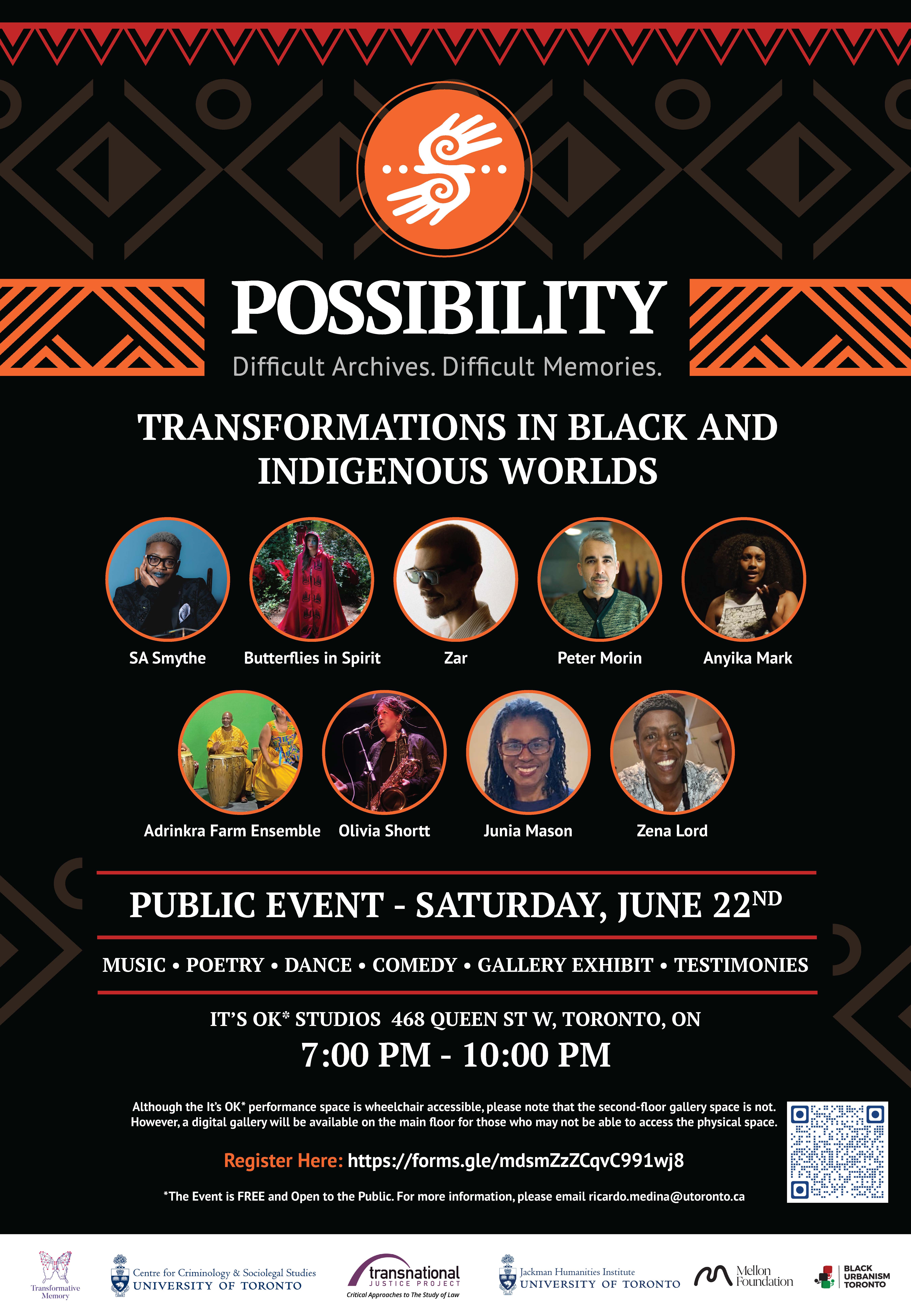MemoLab 2024, “Difficult Archives, Difficult Memories”
When and Where
Description
The Transformative Memory International Network (TMIN), in collaboration with the Transnational Justice Project at the University of Toronto, Queens University, and the University of British Columbia, is pleased to announce MemoLab 2024, entitled, "Possibility: Difficult Archives, Difficult Memories” from June 18th to 22nd 2024. By interrogating absence in the archive as well as its possibilities, MemoLab 2024 invites the university community and the public to explore art as a catalyst for social change and transformation. It asks how we can rectify the lives of those obscured by land dispossession, violence, and the aftermath of plantation slavery, while also opening domains of creative possibility? Through an art exhibit, musical and spoken word performances, and scholarly engagement, Memolab will explore loss and dispossession by rendering absence present.
Public-facing event on June 22
On Saturday, June 22, from 7:00 pm to 10:00 pm, MemoLab 2024 will host at It's OK Studios, 468 Queen Street West, a public-facing celebration entitled, Possibility: Difficult Archives. Difficult Memories. Transformations in Black and Indigenous Worlds. The event will involve an array of artistic expressions, including music, dance, lectures, poetry, spoken word, and live performances – all pointing to the challenge of the archive and ways to create new futures.
For the closing performance, if you want, think about the possibility of wearing an article of clothing that carries the color used to symbolize a community/place/site of your mourning, joy, awareness (e.g., orange for truth and reconciliation; red for HIV/AIDS), or otherwise choose the color you wear that day with some intention for your internal compass.
There is also a Collective Exhibition June 18-22. Visit the event page for more information.
For more information, email Kamari Clarke or Ricardo Medina.
Acknowledgement of financial support
This initiative is funded primarily by the Social Sciences and Humanities Research Council (SSHRC) with support from the Jackman Humanities Institute, the Mellon Foundation Sawyer Seminar and the University of Toronto’s Centre for Criminology and Sociolegal Studies’ Transnational Justice Project and the Cluster for the Study of Racism and Inequality. The public-facing event, the collective exhibition, and the art exhibit launch are FREE and Open to the Public.



